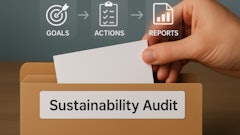
Behavioral finance experts Oxford Risk say many of the investment decisions retail investors in the United States and elsewhere around the world make are for emotional comfort, and it estimates that on an average year this typically costs them 3% in returns. However, given the increased level of market volatility during the pandemic, and that the level of emotional decisions made by investors in terms of managing their portfolios has increased dramatically, the cost of this will be more – in some cases it will be much higher.
Oxford Risk says many investors have increased their allocation to cash during these volatile times for markets, and the cost of this ‘reluctance’ to invest is around 4% to 5% a year over the long-term. In addition, it estimates that the cost of the ‘Behavior Gap’ – losses due to timing decisions caused by investing more money when times are good for stock markets and less when they are not – i.e. buy high and sell low – is on average around 1.5% to 2% a year over time.
Oxford Risk builds software to help wealth managers and other financial services companies assist their clients in making the best financial decisions in the face of complexity, uncertainty, and behavioral biases. However, it says that many wealth managers and financial advisers are poorly equipped to help clients deal with the emotional and psychological roller-coaster ride their clients have endured during the COVID-19 crisis, and the impact it has had on markets and their investments.
Greg B Davies, PhD, Head of Behavioral Finance Oxford Risk said: “The suitability processes of many wealth management businesses are typically too human heavy, inefficient, and front loaded to the beginning of the client relationship to keep up with rapidly changing client circumstances at scale during a crisis. Understanding of client financial personality is typically limited to risk profiling - often badly – and subjective human assessment. Very few wealth management propositions are using the sort of objective, science-based measures that are needed to provide a comprehensive picture of their clients. There is too much guesswork and not enough technology.”
“This means that assessment of client emotional proclivities is noisy, biased and prone to error … it is too subjective. This is not to advocate removing humans from the process – far from it – humans conversations are vital, particularly in a crisis, but advisers need to be assisted by better diagnostic tools enabling accurate assessment of the client’s personality and likely behavioral tendencies.”
Oxford Risk has launched a free Market Emergency Survival Kit which allows retail investors to measure six key dimensions of financial personality, which the company has identified through extensive research into investor psychology and financial wellbeing. The service also provides personalised recommendations on how best to invest, which are based on the findings.
The company says there are behaviours that are common to many investors at such volatile and uncertain times. During a crisis, investors are likely to focus too much on the present and on the detail, feeling compelled to do something even when sitting tight is the best solution. They can gravitate towards the familiar – often leading to underinvestment, selling low, or decreased diversification.
Marcus Quierin, PhD, CEO, Oxford Risk said: “Many of these actions will mean that investors turn paper losses into real ones. If they don’t need to withdraw money for immediate expenses, then the losses are only virtual… until they panic and make them real.”
“The investments in the news are not your investments. Retail investors should avoid watching the markets day-to-day as this will only increase anxiety to no useful end, and make you feel like you should be doing something, without any useful guidance to what that should be. Long-term plans should be looked at through long-term lenses.
“Finally, investors should focus on what they can control. It’s the most ancient advice there is, and still the most important. You can’t move the market or predict when it’s at the ‘bottom’ or the ‘top’. You can postpone discretionary spending and use tumultuous times as an opportunity to take stock of your long-term financial plans. And you can control the opportunity to benefit from the ‘risk premium’ – the long-term reward for owning shares that has eventually weathered every short-term storm yet.”

















